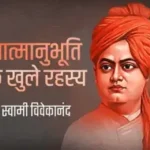Hanuman Jayanti is one of the most revered Hindu festivals celebrated across India to mark the birth of Lord Hanuman—one of the most powerful and devoted followers of Lord Rama. Known for his unwavering devotion, unmatched strength, and unshakable faith, Lord Hanuman holds a unique position in Hindu mythology. Celebrated with great enthusiasm and spiritual fervor, Hanuman Jayanti 2025 is a significant occasion for devotees to seek divine blessings, strength, courage, and wisdom.
In this blog, we will explore the significance, rituals, spiritual meaning, and regional variations of Hanuman Jayanti. We’ll also dive into some Hanuman Jayanti 2025 dates, celebration ideas, and puja methods for those observing the day at home.
Who is Lord Hanuman?
Lord Hanuman, also known as Anjaneya, Bajrangbali, Maruti Nandan, and Pavanputra, is a central figure in the Indian epic Ramayana. He is the son of Anjana and Kesari and is believed to be the incarnation of Lord Shiva. His divine birth was blessed by the Wind God (Vayu), which earned him the title Pavanputra (Son of Wind).
Hanuman is revered as the symbol of devotion, discipline, loyalty, and valor. His contributions in the Ramayana—especially his role in finding Sita Mata, burning Lanka, and fighting against Ravana’s army—made him immortal in the hearts of devotees.
When is Hanuman Jayanti in 2025?
In most parts of India, Hanuman Jayanti is celebrated on the full moon day (Purnima) of Chaitra month, which falls between March and April. In 2025, Hanuman Jayanti will be observed on Saturday, April 12, according to the Hindu lunar calendar.
However, the date and mode of celebration may differ across regions:
North India: Celebrated during Chaitra Purnima
Maharashtra: Observed on the 15th day of Shukla Paksha in the month of Margashirsha
Tamil Nadu and Kerala: Hanuman Jayanti is observed in the month of Margazhi (December–January)
Significance of Hanuman Jayanti
The festival is not just about the birth of a mythological figure; it is a celebration of spiritual strength, humility, and ultimate devotion. Lord Hanuman is seen as:
A protector against evil spirits and black magic
The embodiment of Brahmacharya (celibacy) and supreme discipline
The symbol of fearlessness and loyalty
For those facing difficulties, fears, or obstacles, worshiping Lord Hanuman is believed to bring relief and solutions. Reciting the Hanuman Chalisa or Sundar Kand on this day is considered highly beneficial.
Hanuman Jayanti 2025: Date and Muhurat
| Event | Date | Day |
|---|---|---|
| Hanuman Jayanti 2025 | April 12, 2025 | Saturday |
| Purnima Tithi Begins | April 12, 2025 | 03:21 AM |
| Purnima Tithi Ends | April 13, 2025 | 05:51 AM |
Note: Muhurat timings may vary depending on your location. Always consult a local Panchang or astrologer for accurate timings.
Hanuman Jayanti Rituals and Celebrations
1. Morning Rituals and Bath
Devotees begin the day with an early morning snan (bath), preferably in holy rivers or at home. After purifying the body and mind, they wear clean or traditional clothes before starting puja preparations.
2. Hanuman Puja at Home or Temple
Devotees visit Hanuman temples or organize pujas at home. Offerings usually include:
Sindoor (vermilion) mixed with oil
Laddoos, bananas, and jaggery
Garlands made of marigold flowers
Tulsi leaves and betel nuts
Chanting of Hanuman Chalisa, Bajrang Baan, and Sundar Kand Paath takes place with great devotion.
3. Vrat (Fasting)
Many devotees observe a day-long fast on Hanuman Jayanti. Some follow Nirjala Vrat (without water), while others consume fruits or milk. The fast is broken only after the evening aarti and prasad distribution.
4. Aarti and Bhajan-Kirtan
Temples and homes resonate with devotional songs and aartis such as:
“Aarti Kije Hanuman Lala Ki”
“Jai Hanuman Gyan Gun Sagar”
Bhajans describing Hanuman’s bravery and service to Lord Rama
5. Processions and Cultural Events
In many regions, colorful Shobha Yatras (processions) with tableaux of Hanuman’s life are organized. Spiritual discourses, dramas, and Ram Katha are also held in temples and public places.
Spiritual Meaning of Hanuman Jayanti
Hanuman Jayanti is not just a celebration of a deity’s birth; it is a reminder for us to:
Practice self-discipline and humility
Serve others with devotion and without ego
Cultivate strength to overcome fears and enemies (inner and outer)
Remain loyal to truth and righteousness
His undying love and loyalty toward Lord Rama inspire devotees to cultivate bhakti (devotion) and seva bhav (spirit of service) in their own lives.
Hanuman Jayanti Vrat Katha (Story Behind the Fast)
According to ancient scriptures, Anjana, a celestial nymph, performed intense penance to be blessed with a son. Lord Shiva granted her wish, and with the blessings of the wind god Vayu, she gave birth to Hanuman. As a child, Hanuman mistook the Sun for a fruit and tried to eat it, displaying his immense power.
The vrat katha also recounts his services in Lord Rama’s exile, how he leapt across the ocean to find Sita Mata in Lanka, and how he carried the Sanjeevani herb to save Lakshmana.
Observing the vrat and listening to this katha on Hanuman Jayanti brings spiritual merit and helps fulfill wishes.
Regional Celebrations of Hanuman Jayanti
North India
In Uttar Pradesh, Bihar, Rajasthan, and Delhi, Hanuman temples are beautifully decorated. Long queues of devotees can be seen offering laddoos and sindoor. Akhand Ramayana Paath and Hanuman Chalisa chanting continue day and night.
Maharashtra
The celebration starts from Chaitra Shukla Paksha Pratipada and continues for 14 days till Hanuman Jayanti. Special prayers and satsangs are held across temples in Mumbai and Pune.
South India
In Tamil Nadu and Andhra Pradesh, Hanuman Jayanti is linked to Vaikunta Ekadashi and is observed in the Margazhi or Dhanu month. Here, Hanuman is seen more as a spiritual warrior and guru.
How to Celebrate Hanuman Jayanti at Home
If you wish to celebrate Hanuman Jayanti 2025 at home, here are some simple steps:
Clean your home and puja space
Decorate the Hanuman idol with chunari, flowers, and sindoor
Offer boondi laddoos, bananas, and incense
Recite Hanuman Chalisa and Sundar Kand
Perform aarti with family members
Distribute prasad and donate to the poor
Benefits of Worshipping Lord Hanuman
Protection from evil spirits and negativity
Courage and mental strength during difficult times
Success in exams, careers, and legal matters
Improved health and vitality
Spiritual upliftment and peace of mind
Popular Hanuman Mantras and Prayers
Hanuman Chalisa
“Jai Hanuman Gyan Gun Sagar, Jai Kapis Tihun Lok Ujagar…”Bajrang Baan
A powerful hymn for protection against negative forces.Hanuman Ashtak
Praises Hanuman’s strength, bravery, and wisdom.Mantra for strength:
“Om Hanumate Namah” – Chant this 108 times daily.
Digital Celebrations and Trends in 2025
With the rise of social media, many devotees now share virtual aartis, bhajans, and Hanuman Jayanti quotes. Online satsangs, digital wallpapers, and even Hanuman Chalisa podcasts are trending.
Temples also stream live darshan and aarti on YouTube and Facebook, allowing global participation.
Last Opinion
Hanuman Jayanti is more than just a festival—it’s a spiritual awakening, a reminder to embrace devotion, strength, and selfless service in our lives. Whether you’re visiting a temple or celebrating at home, the key lies in faith, discipline, and gratitude.
As Hanuman Jayanti 2025 approaches, may Bajrangbali bless us all with the power to overcome difficulties, remain loyal to dharma, and lead a life full of courage and compassion.
Frequently Asked Questions (FAQs)
Q1: What should we offer to Lord Hanuman on Hanuman Jayanti?
A: Offer sindoor, boondi laddoo, betel leaves, coconut, and marigold flowers.
Q2: Can we eat onion and garlic on Hanuman Jayanti?
A: It is advisable to avoid onion, garlic, and non-vegetarian food on this sacred day.
Q3: Can women observe Hanuman Jayanti fast?
A: Yes, Hanuman is a Brahmachari but women can worship him and observe fasts.
Q4: What time should Hanuman Jayanti puja be done?
A: Ideally during Brahma Muhurat or Chaitra Purnima Tithi, as per local timings.
Related posts:
 Hariyali Teej 2025: Date, Significance, Rituals, and Celebrations
Hariyali Teej 2025: Date, Significance, Rituals, and Celebrations
 Hindu New Year 2025: Significance, History, Traditions, and Celebrations
Hindu New Year 2025: Significance, History, Traditions, and Celebrations
 Holi and Its Mythological Significance: A Century of Celebrations in India
Holi and Its Mythological Significance: A Century of Celebrations in India
 The Spiritual Significance and Story Behind Jyeshtha Mangal
The Spiritual Significance and Story Behind Jyeshtha Mangal
 Control Anger and Ego: Lessons from Hanuman on Jyeshtha Mangal
Control Anger and Ego: Lessons from Hanuman on Jyeshtha Mangal
 Unlocking the Secrets of Self-Realization: Insights from Swami Vivekananda’s ‘Atmanubhuti Ke Khule Rahasya
Unlocking the Secrets of Self-Realization: Insights from Swami Vivekananda’s ‘Atmanubhuti Ke Khule Rahasya
